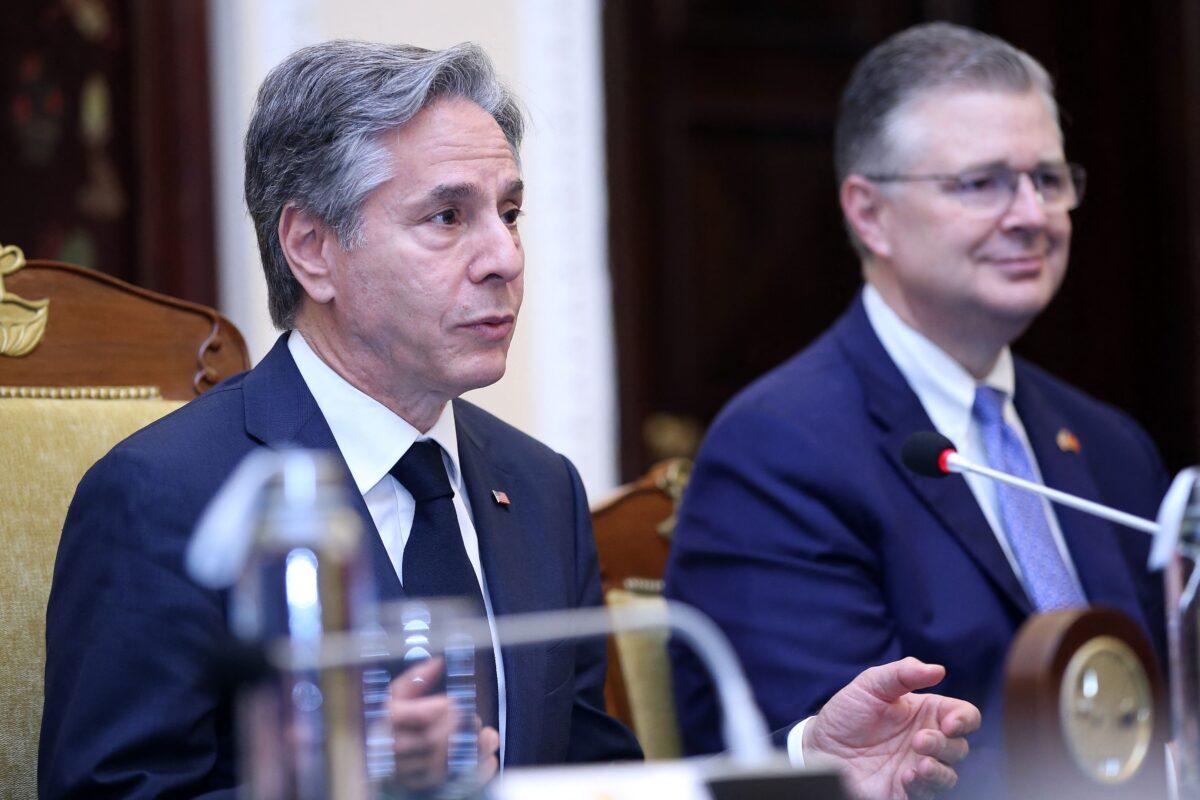House Foreign Affairs Committee Chairman Rep. Michael McCaul (R-Texas) is demanding details from the State Department over its reported decision to withhold actions aimed at confronting threats from communist China.
Some of the postponed actions include export controls targeting Chinese telecom supplier Huawei and sanctions against Chinese officials for human rights, according to the report.
The Reuters report, citing unnamed sources, also said Deputy Secretary of State Wendy Sherman was eager to “move on” from the balloon incident and reschedule the Blinken trip.
To McCaul, who advocates for a stronger position on China, such instructions are “deeply troubling” and demonstrate the State Department’s “continued weakness and passivity” in the face of Chinese aggression.
“Congress has empowered the executive branch with national security tools such as sanctions and export controls for the express purpose of protecting U.S. national security and foreign policy interests, but the Department apparently refuses to implement them,” he wrote in the letter to Blinken, noting that the report is consistent with information his committee has received in recent months. “This undermines not only the basis for these tools but also diplomatic efforts to secure coordination among partners and allies.”

Daniel Kritenbrink, the assistant secretary of state for East Asian and Pacific Affairs, remained evasive when Rep. Bill Huizenga (R-Mich.) repeatedly questioned him whether Sherman “refused to approve or requested any delay in implementation of congressionally-mandated Uyghur Human Rights Policy” sanctions.
“We continue to take a number of steps and we will take a number of steps to hold accountable,” replied Kritenbrink, as Huizenga interrupted him.
“That’s a yes or no kind of question though,” Huizenga said.
Kritenbrink responded by reiterating his previous statement. “I support making sure that we take steps to ensure that we hold to account those in China,” he said when Huizenga asked him whether Kritenbrink himself supported any delay in Uyghur human rights-related sanctions.
McCaul said that the “policy of weakness” at the State Department has “apparently damaged morale at the Office of China Coordination,” the office tasked with coordinating China policies under Waters also known as China House, citing the Reuters report saying the office has a vacancy rate as high as 40 percent in part due to staff resistance to the policy directions.
“For the U.S. to succeed in its strategic competition with the PRC, it is essential that it be willing to unflinchingly hold the PRC accountable for its aggression and malfeasance, and that it be well-organized and effective in doing so,” said McCaul.
McCaul’s requested documents include communications relating to the Chinese regime and its entities that involve Blinken or other key State Department officials since last October; information relating to staffing arrangements at China House; top State Department officials’ engagements with their Chinese counterparts, and other documents detailing department policy with China following the Chinese spy balloon incident.
Asked by The Epoch Times about McCaul’s letter, a State Department spokesperson said that the department has “coordinated with the interagency on a record-setting number of sanctions, export controls, and other competitive actions” regarding China since President Joe Biden took office in 2021.
“Without commenting on specific actions, this work is sensitive and complex, and obviously sequencing is essential to maximize impact and make sure our messaging is clear and lands precisely,” the spokesperson said in an emailed statement.
“We carefully coordinate both the substance and timing of actions with our partners to ensure the actions have the intended effect. And under this administration, we’ve seen greater alignment than ever with close partners in Europe, Asia, and around the world in our approach to the PRC.”





